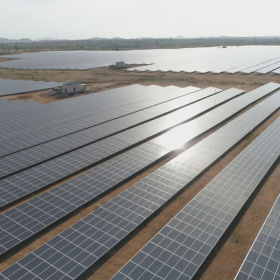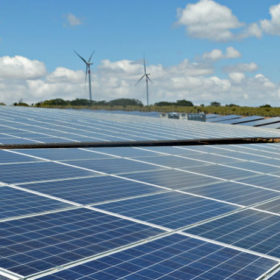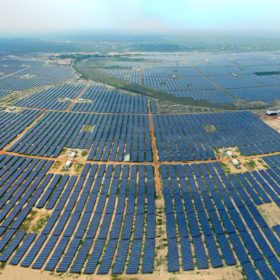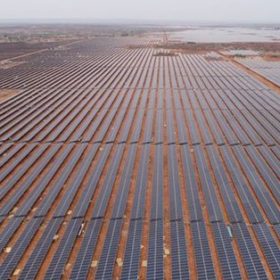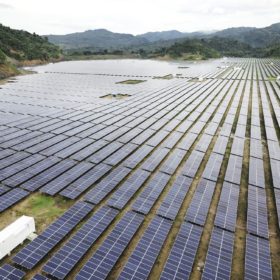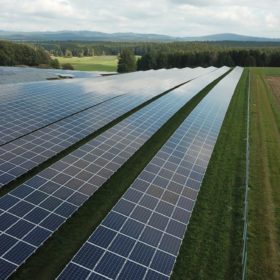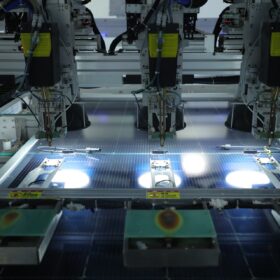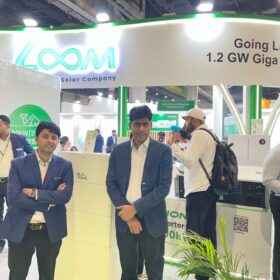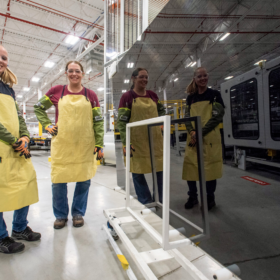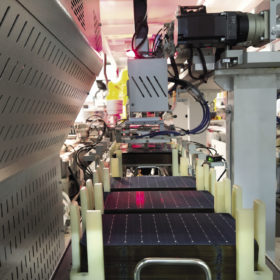Financing solar projects amid the Covid-19 crisis – thinktank interview
Vaibhav Pratap Singh, senior analyst at the CEEW Centre for Energy Finance, tells pv magazine about the impact of the Covid-19 pandemic on the Indian solar sector, green finance and investment down the line.
Two-week bidding extension for SCCL’s 81 MW solar
Developers now have 14 more days to submit bids for 34 MW (AC) ground based, 32 MW (AC) over-burden dump based and 15 MW (AC) floating solar plants at Singareni Collieries Company Limited (SCCL) sites in Telangana state.
India to add 15 GW of wind-solar hybrid capacity in five years
Almost 10 GW of hybrid generation capacity is already under implementation despite India having only 100 MW of combined wind and PV projects at present, according to analyst Crisil.
Adani Green Energy wins world’s largest solar award
The developer is reported to have exercised an option to double the 4 GW of solar generation capacity and 1 GW of cell and module production facilities it secured in the manufacturing-linked solar tender carried out by the Solar Energy Corporation of India in November.
Covid delayed 63% of India’s utility-scale solar in first quarter
Covid-19-prompted disruption severely impacted solar installation during January-March, 2020 as the country added only 689 MW of utility-scale PV against 1,864 MW scheduled to be commissioned.
Solar tariffs below Rs 2.55/kWh financially unviable now, says Ieefa
To earn reasonable returns on solar projects, developers must factor in the various risks and correctly estimate the cost of every component before bidding.
Covid-19 impact: Acme Solar wants to abandon record-low solar price tariff
The developer wants to cancel the power purchase agreement it signed in 2018 for a 600 MW project awarded at a tariff of Rs2.44/kWh, as it fears Covid-19-affected commissioning of the project will stretch beyond the six-month extension from the scheduled date enshrined in the agreement.
Another bidding extension for SCCL’s 81 MW solar projects
Developers now have one extra month to submit bids for 34 MW (AC) ground based, 32 MW (AC) over-burden dump based and 15 MW (AC) floating solar plants at Singareni Collieries Company Limited (SCCL) sites in Telangana state.
India’s renewables-plus-storage tenders mark a new beginning with highly competitive tariffs: NSEFI
The recently concluded 400 MW renewables auction to supply 24-hour electricity saw winning bid of INR2.90/kWh—a new milestone after peak+off-peak tariff of INR4.07 was achieved in January’s 1.2 GW auction demanding assured power supply during peak demand hours.
Renew Power wins 400 MW ‘round-the-clock’ renewables auction at Rs2.90/kWh
The developer can opt for solar, wind or an hybrid facility alongside an energy storage system to ensure 24-hour power supply.

